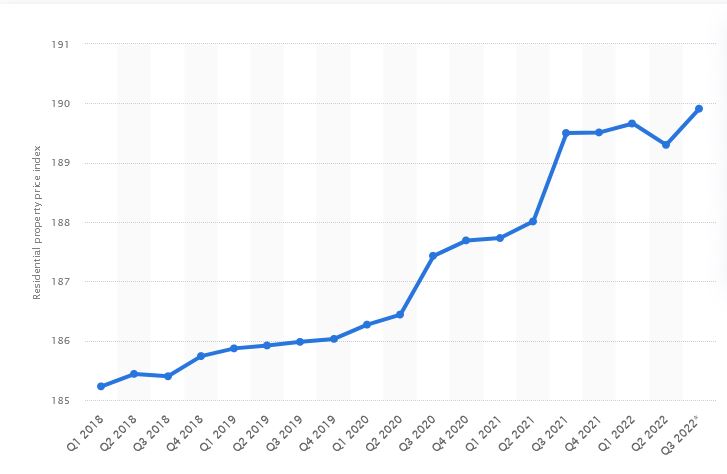A Comprehensive Comparison: Is Bali Better Than Phuket to Invest?
In the world of real estate investment, the allure of tropical paradises often beckons. Bali and Phuket, two of Southeast Asia’s most renowned tourist destinations, have captivated the attention of investors seeking opportunities in these picturesque locales and the question remains ‘Where should I Invest”. This article is designed to provide potential investors with a thorough evaluation of the advantages and considerations associated with real estate investment in Bali and Phuket, equipping them to make informed decisions aligned with their investment objectives and preferences.
Table of Contents
Economic Overview
Before delving into the specifics of the real estate markets in Bali and Phuket, it’s essential to understand the broader economic landscape in both regions.
Economic Landscape in Bali
Bali, Indonesia’s jewel, has witnessed a steady rise in its economy in recent years. Its economic pillars include tourism, agriculture, and manufacturing. Bali’s natural beauty, rich culture, and warm hospitality have established it as a global tourist magnet. Tourism is the lifeblood of Bali’s economy, generating substantial employment and infrastructure development.
Bali’s economy grew by 6.04 percent, although it slowed down compared to the previous quarter. In the first quarter of 2023, it is still dominated by Providing Accommodation and Food and Drink which contributes 19.22 percent. When compared with the same period the previous year (y-on-y), Bali’s economy in the first quarter of 2023 grew by 6.04 percent.
Economic Landscape in Phuket
Phuket, a province in Thailand, shares a similar dependence on tourism. The island’s economy has surged, thanks to its breathtaking beaches, vibrant nightlife, and accessibility. Phuket’s emphasis on luxury tourism has made it a favored destination for high-spending travelers. The Thai government has invested heavily in infrastructure and transportation, including the expansion of Phuket International Airport, to accommodate the escalating number of visitors. However, The resort island province is working on a plan to develop itself into a “New Economy” less reliant on tourism for its survival.

Real Estate Market
Bali’s Real Estate Landscape
Bali’s real estate market has experienced substantial growth, propelled by the surge in tourism and foreign investment. Foreigners typically acquire properties in Bali through leasehold agreements, with lease terms typically ranging from 25 to 70 years. Freehold ownership is predominantly reserved for Indonesian citizens, making leasehold agreements the primary avenue for foreign investors.
The Bali real estate market offers a wide array of properties, including beachfront villas, luxury resorts, and more affordable apartments and condos. This diversity caters to a broad spectrum of investors, from those seeking short-term rental income to those anticipating long-term capital appreciation.

Phuket’s Real Estate Landscape
Phuket’s real estate market has also experienced remarkable growth, particularly in the luxury segment. The island provides various property types, including beachfront villas, condominiums, and upscale developments. Similar to Bali, foreign investors typically acquire properties through leasehold agreements, although certain structures allow for partial freehold ownership through Thai companies.
Phuket’s real estate market thrives on its reputation as a high-end destination, attracting affluent travelers and property investors. The potential for high rental yields and rapid property appreciation makes it a preferred choice for investors seeking premium returns.

Tourism Growth in Bali and Phuket
In recent years, Bali and Phuket have witnessed an astonishing surge in tourism, solidifying their positions as premier travel destinations in Southeast Asia.
Bali, often referred to as the “Island of the Gods,” has captivated tourists with its pristine beaches, lush landscapes, and rich cultural heritage. Travelers flock to Bali to experience its vibrant arts scene, picturesque rice terraces, and ancient temples. Additionally, the island’s warm hospitality and diverse culinary offerings have made it a favorite among international visitors.
Similarly, Phuket, known as the “Pearl of the Andaman Sea,” has also experienced a notable tourism boom. Its stunning coastline, featuring powdery white beaches and crystal-clear waters, beckons sunseekers and water sports enthusiasts alike. Phuket’s bustling nightlife, vibrant markets, and an array of world-class resorts cater to a diverse range of visitors, from luxury seekers to budget-conscious travelers.
Both Bali and Phuket have made substantial investments in tourism infrastructure, ensuring a seamless and enjoyable experience for visitors. Improved transportation networks, a variety of accommodation options, and enhanced tourism services have contributed to the increasing popularity of these destinations. With their unique charm and a wide array of attractions, Bali and Phuket continue to enthrall globetrotters, fostering a robust and sustainable tourism industry that shows no signs of slowing down.
Investment Risks and Challenges
While both Bali and Phuket offer enticing investment opportunities, it’s crucial to consider the potential risks and challenges.
Bali Investment Risks and Challenges
- Regulatory Changes: Indonesian property laws can undergo revisions, impacting investors. Staying informed about regulatory shifts is vital.
- Infrastructure Development: Rapid development can strain infrastructure and public services in certain areas, affecting property appeal.
- Environmental Concerns: Bali is prone to environmental issues like volcanic activity and rising sea levels, which can impact property values and insurance costs.
Phuket Investment Risks and Challenges
- Currency Fluctuations: As an international investor in Thailand, you may be exposed to currency exchange rate fluctuations, influencing your returns.
- Ownership Restrictions: Thai laws limit freehold ownership for foreigners. Understanding leasehold and company ownership structures is essential.
- Political Stability: Political stability is a concern in any foreign investment. Monitoring the political climate and its potential impact on investments is prudent.

Taxation and Legal Implications
Understanding taxation and legal facets is fundamental to making informed investment decisions in Bali and Phuket.
Bali Taxation and Legal Implications
- Property Taxes: Bali imposes property taxes, including a property transfer tax and annual property tax, with rates varying by property type and location.
- Income Tax: Rental income is subject to income tax, with differing rates for residents and non-residents.
Learn more information on taxation and regulation of property in Bali
Phuket Taxation and Legal Implications
- Property Taxes: Thailand levies various property transaction taxes, including transfer fees, specific business taxes, and stamp duty. Rates vary based on property value and usage.
- Income Tax: Rental income in Thailand is subject to income tax, with rates contingent on your tax status.

In the debate of Bali versus Phuket for real estate investment, there’s no definitive answer. Bali offers diverse cultural richness and steady rental income, attracting those seeking long-term appreciation. However, it comes with regulatory and environmental considerations. On the other hand, Phuket appeals to luxury market investors, offering higher rental rates and faster property appreciation, albeit with ownership restrictions and currency fluctuations.
Ultimately, the choice should align with your investment goals and risk tolerance. Conduct thorough research and seek professional advice to make an informed decision. If you are considering investing in Bali properties, consult with Bukit Vista for expert guidance and to maximize your property’s revenue potential!



